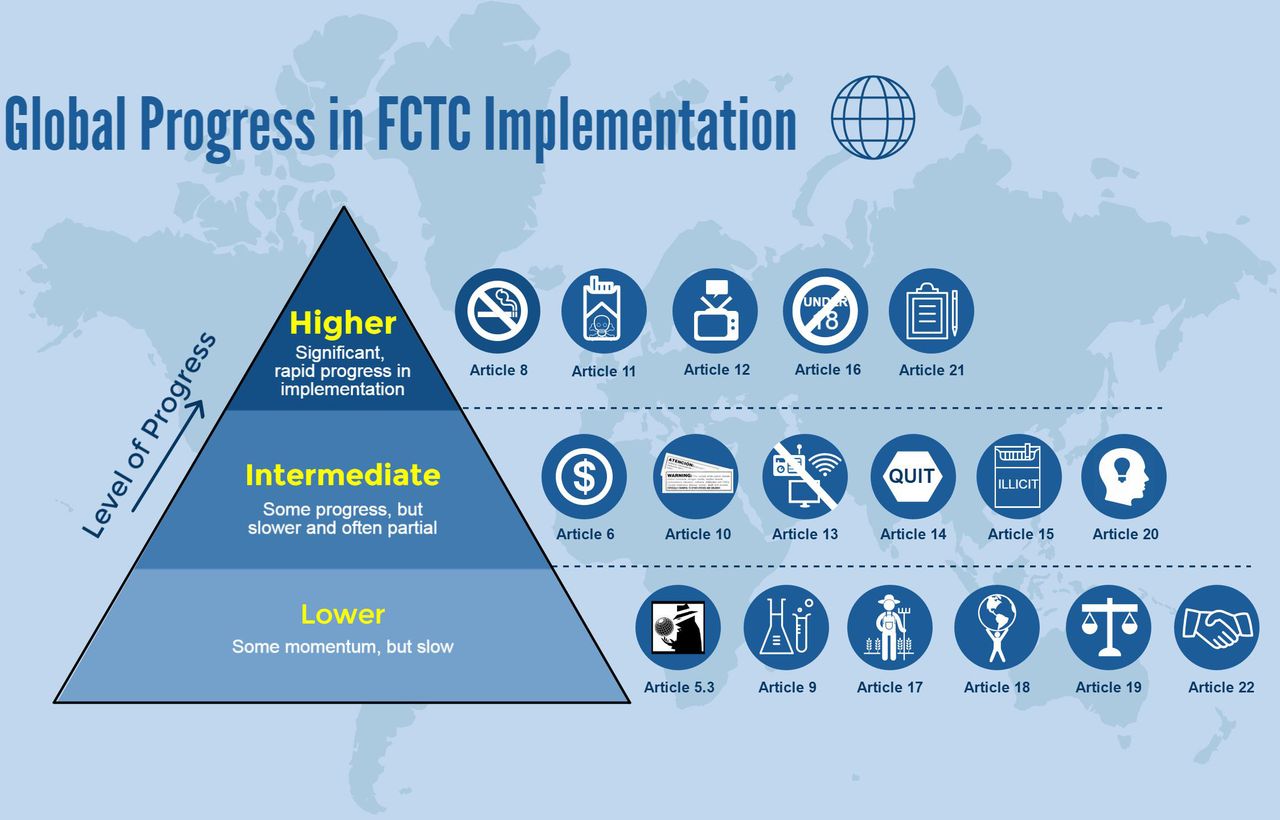From Policy to Practice - Advancing the FCTC Protocol for Effective Tobacco Control
The FCTC protocol refers to the Protocol to Eliminate Illicit Trade in Tobacco Products, which is an international treaty adopted under the auspices of the World Health Organisation (WHO) Framework Convention on Tobacco Control (FCTC). It was developed under the auspices of the WHO in response to the alarming rise in tobacco-related illnesses and deaths.
The FCTC protocol has been adopted by 182 countries, making it one of history's most widely embraced international treaties. 66 entities are also signatories to the illicit trade element, with 48 of these countries ratified, with a need to become compliant with the scheme.
Source - World Health Organization (WHO) - Framework Convention on Tobacco Control (FCTC) - and the United Nations Treaty .
It is important to note that the FCTC provides a framework for action, but the implementation of the provisions and the enforcement of measures is the responsibility that lies on the countries. Countries can adapt and implement FCTC provisions according to their national circumstances and priorities to effectively address illicit trade in tobacco products.
To date WHO has classified global progress against illicit trade as “intermediate” (i.e. some progress but slower and often partial) and is increasing pressure on countries to fulfil their ratification commitments to the FCTC Protocol. Signatories remain committed to implementation. A survey that De La Rue conducted with Reconnaissance in 2022 received responses from 10 tax authorities who had signed up to the FCTC protocol to eliminate illicit trade in tobacco products and 70% said it was in the top five of their priorities for the year ahead.

After signing up for the Framework Convention on Tobacco Control (FCTC), there are several crucial steps to take before implementing the protocol –
- Familiarisation with the FCTC Protocol by thoroughly studying the provisions, guidelines, and recommendations outlined in the FCTC.
- An assessment of existing policies, practices, and systems related to tobacco control helps in a comprehensive understanding and identifying areas that may require adjustments or enhancements to align with FCTC’s requirements.
- Developing an implementation strategy through a detailed plan helps cover key areas such as tracking and tracing systems, standardised packaging, intellectual property rights enforcement, public awareness campaigns, and collaboration with relevant stakeholders.
- Determining the necessary resources, including financial, human, and technological, required for successful implementation ensures that sufficient funds and personnel are allocated to support the implementation process effectively.
- Fostering partnerships with relevant stakeholders, including government agencies, public health organisations, and industry associations aids in collaboration with these entities to facilitate knowledge sharing, coordination of efforts, and joint initiatives to address tobacco control challenges.
- Establishing robust monitoring and evaluation mechanisms help in tracking progress, measuring the effectiveness of the implemented measures, and identifying areas for improvement.
- Knowledge exchange with other countries, and actively participating in regional and international forums, conferences, and workshops related to tobacco control and the FCTC can aid in learning from their experiences and best practices.
- Technical and knowledge assistance from reputable organisations or consultants with knowledge can provide valuable insights and support throughout the process – contact us.
“The situation of smuggled tobacco products coming from outside the EU would be impossible if all countries significant in this respect joined the Protocol.”
By following these steps, organisations can effectively prepare for the implementation of the FCTC protocol, ensuring a smooth transition and a more successful and impactful tobacco control strategy.
De La Rue’s 2022 survey with Reconnaissance found that the main barriers to FCTC implementation were legislation, complexity, and a lack of resources and budget. Fortunately, it is possible to learn from the experience of others - multiple governments have now implemented FCTC and De La Rue has a diverse range of experience, going back over a decade and providing digital and physical solutions that support schemes in 14 countries across Europe, Africa and the Middle East.
.png?width=1024&height=768&name=MicrosoftTeams-image%20(9).png)
The advantages of implementing an effective tax excise scheme can go beyond protecting the health of citizens and can be significant. In one country supported by De La Rue, the illicit trade in tobacco products dropped from 68% to an estimated 5%, while tax revenues from products rose to 15 times its previous level – becoming the second highest source of national income, after fuel. Elsewhere we are seeing schemes starting to expand beyond tobacco as governments realise the benefits.



